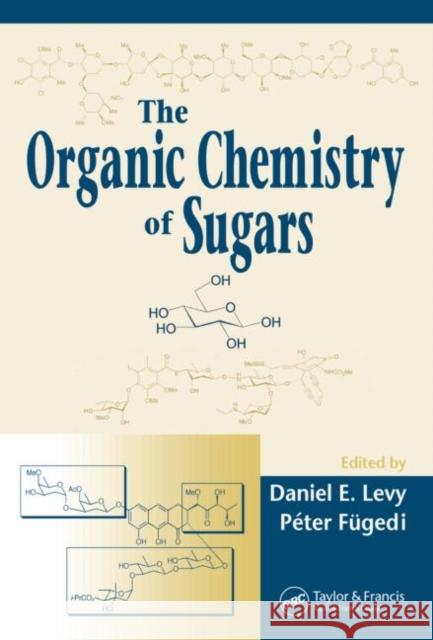The Organic Chemistry of Sugars » książka
The Organic Chemistry of Sugars
ISBN-13: 9780824753559 / Angielski / Twarda / 2005 / 904 str.
The Organic Chemistry of Sugars
ISBN-13: 9780824753559 / Angielski / Twarda / 2005 / 904 str.
(netto: 1411,08 VAT: 5%)
Najniższa cena z 30 dni: 1402,99
ok. 16-18 dni roboczych.
Darmowa dostawa!
Intrigued as much by its complex nature as by its outsider status in traditional organic chemistry, the editors of The Organic Chemistry of Sugars compile a groundbreaking resource in carbohydrate chemistry that illustrates the ease at which sugars can be manipulated in a variety of organic reactions. Each chapter contains numerous examples demonstrating the methods and strategies that apply mainstream organic chemistry to the chemical modification of sugars. The book first describes the discovery, development, and impact of carbohydrates, followed by a discussion of protecting group strategies, glycosylation techniques, and oligosaccharide syntheses. Several chapters focus on reactions that convert sugars and carbohydrates to non-carbohydrate molecules including the substitution of sugar hydroxyl groups to new groups of synthetic or biological interest, cyclitols and carbasugars, as well as endocyclic heteroatom substitutions. Subsequent chapters demonstrate the use of sugars in chiral catalysis, their roles as convenient starting materials for complex syntheses involving multiple stereogenic centers, and syntheses for monosaccharides. The final chapters focus on new and emerging technologies, including approaches to combinatorial carbohydrate chemistry, the biological importance and chemical synthesis ofglycopeptides, and the medicinally significant concept of glycomimetics. Presenting the organic chemistry of sugars as a solution to many complex synthetic challenges, The Organic Chemistry of Sugars provides a comprehensive treatment of the manipulation of sugars and their importance in mainstream organic chemistry.











